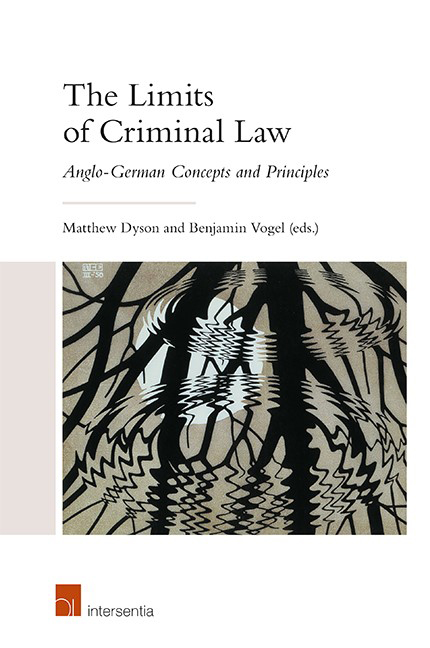Book contents
- Frontmatter
- Preface
- Contents
- List of Cases
- List of Abbreviations
- List of Contributors
- Chapter 1 Introduction
- PART I CORE PRINCIPLES OF CRIMINAL LAW
- PART II CRIME AND TORT
- PART III CRIME AND MEDICAL
- PART IV CRIME AND REGULATION
- PART V ADMINISTRATIVE SANCTIONS
- PART VI ALTERNATIVE ENFORCEMENT
- PART VII COUNTER-TERRORISM
- PART VIII CRIME AND INTELLIGENCE
- PART IX CONCLUSION
- Index
- About the Editors
Chapter 23 - Intelligence and the Criminal Law in England and Wales
Published online by Cambridge University Press: 11 February 2021
- Frontmatter
- Preface
- Contents
- List of Cases
- List of Abbreviations
- List of Contributors
- Chapter 1 Introduction
- PART I CORE PRINCIPLES OF CRIMINAL LAW
- PART II CRIME AND TORT
- PART III CRIME AND MEDICAL
- PART IV CRIME AND REGULATION
- PART V ADMINISTRATIVE SANCTIONS
- PART VI ALTERNATIVE ENFORCEMENT
- PART VII COUNTER-TERRORISM
- PART VIII CRIME AND INTELLIGENCE
- PART IX CONCLUSION
- Index
- About the Editors
Summary
INTELLIGENCE AND CRIMINAL LAW: A SIGN OF PARADIGMATIC CONFLICT
Specifically, intelligence is: mainly secret activities – targeting, collection, analysis, dissemination and action – intended to enhance security and/or maintain power relative to competitors by forewarning of threats and opportunities. … ‘Intelligence’ … may also be taken to refer to those organizations that carry out these activities and to their ‘product’. But, in all cases, the knowledge/power connection is axiomatic and in order to distinguish intelligence from a myriad of other ‘knowledge management’ practices, note that its object is security, some element of it will be conducted in secrecy and, because it is always relative to others, it will provoke resistance.
‘Intelligence’ is pre-crime, directed towards the elimination of harm and risks of harm. It exists to foresee and forestall threats, national and international, to security. The paradigmatic intention of intelligence agencies is pre-emption and prevention to stop crimes occurring, to avert the disasters foreseen, to frame and pre-empt the risks to which we would otherwise be subject. Intelligence-gathering, security and secrecy are deeply intertwined. Their relationship is entrenched in a system of mutual international trust between intelligence operatives. Disclosure and contestation by the public, the accused or subjects of surveillance and control are threats to intelligence – which depends on secrecy and covert operations for much of its power. At the heart of intelligence is a search for knowledge about the likelihood and gravity of risk. Intelligence is about achieving clarity about risk, but it is crucial to its enterprise that the empirical foundations of its risk claims remain secret. Intelligence-gathering is thus sheltered from a process of public or individual contestation, and immune from the normal processes of reason giving.
There are many accounts of the normative foundations of the criminal law. An instrumental account is paradigmatically concerned with the avoidance of serious harms, and with minimising risks of those harms. A non-instrumental account commonly places its justification on the concept of culpability. Culpability cannot be established without fine-grained evidential foundations. Criminal justice structures, policing, prosecution and trial depend on a case construction aimed at establishing that the full weight of evidence is presented to substantiate culpability.
- Type
- Chapter
- Information
- The Limits of Criminal LawAnglo-German Concepts and Principles, pp. 479 - 506Publisher: IntersentiaPrint publication year: 2020
- 1
- Cited by

